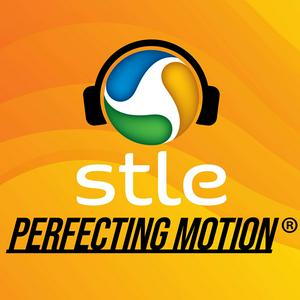Send us a textJoin us for the second session of our hit friction podcast, where we delve into the intricate world of friction at the surface, exploring suggested mechanisms like the foundational adhesion theory by Bowden and Tabor and its historical roots at the Cambridge Cavendish Laboratory, while also discovering how our hosts, Vern and Marc, began their journeys in tribology. This episode tackles boundary friction and techniques for controlling friction at the surface, highlighting the critical importance of accurate friction measurement and clarifying the distinction between friction and traction, including the traction of fluids under shear, and even questioning whether zero friction is achievable. We'll outline engineering guidelines for designing contact interfaces to precisely control friction for specific applications, underscoring the significant impact a tribologist can make through experimental data and modeling for new materials and lubricants—crucial for avoiding costly, high-risk mechanical system testing, a field where companies founded by Marc and Vern are pioneering innovative experimental friction physics. Ultimately, we emphasize the "art of dialogue" in tribology as a truly interdisciplinary subject, demanding expertise across physics, chemistry, metallurgy, and mechanical engineering. For more information, see our advanced show notes. Our Panelists:Vern Wedeven, President of Wedeven Associates, Inc. (WAI), is a leading expert in tribology research and development, with a career spanning over three decades. Since 1987, he and his team at WAI have pioneered specialized tribology test machines and methods, culminating in the innovative Tribology-by-Design (T/D) approach—a comprehensive system integrating theory, tools, methodology, and strategy to solve complex tribological challenges. Dr. Wedeven's significant contributions include advancements in space propulsion systems, such as the Space Shuttle Main Engine turbopumps, and aeropropulsion, with work on jet engine oils, bearings, and gear materials. An alumnus of Calvin University, the University of Michigan, and Imperial College, London, his extensive experience includes tenures at NASA Glenn Research Center, NASA Headquarters, and SKF-America. He has authored over sixty technical papers, contributed to three books, and holds three patents. A Fellow of STLE, Dr. Wedeven has been recognized with numerous accolades, including the Walter D. Hodson Award, the Captain Alfred E. Hunt Award, the Arch T. Colwell Cooperative Engineering Medal, and the STLE International Award. Marc Ingram has over 10 years experience working in Tribology. His masters degree in Chemistry and PhD in Engineering (Tribology) helps him easily bridge the gap that so often exists between lubricant formulator and field/test engineer. He has worked with all major oil and additive companies after a successful career at Imperial College, PCS Instruments and Afton Chemical. Marc has extensive knowledge of all tribology test methods including both standardized and non-standardized lubricant tests. He has designed, modified and improved countless methods, to uFor more information on STLE, please visit https://www.stle.org/ If you have an idea for our podcast, or interested in being a guest, please Email STLE Director of Professional Development Robert Morowczynski at
[email protected] . Also, we love your feedback, please take a minute to provide us with your thoughts at Perfecting Motion Podcast Feedback or Email us at
[email protected].


